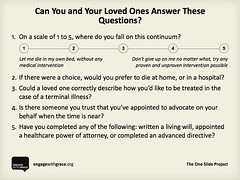 Image via Wikipedia
Image via Wikipedia
Did you know that to clear a debt of £2,200 on a card that attracts an interest rate of around 15% will take more than two years assuming a monthly repayment of £100? Given that this the average amount most people owe on credit cards, I thought it might be useful to compile some money saving ideas.
1.
Set yourself a budget. Work out what must be paid per month, mortgage, utilities, petrol, shopping etc and look at what money you will have coming in. The remiandering amount is your dispsable income for pleasure or to pay off debts.
2.
Pay off as much of your debt as you can - don't be tempted just to pay back the minimum amount, you'll end up paying more in the long run and get so tied in that it will become a strain when you do need to purchase additional necessary items. Look at interest free credit cards, preferrably with a 0% transfer rate and pay the maximum amount you can afford.
3.
Shop around - With price comparison websites, there's plenty of opportunities to look for the most competative mortgage, insurance and
utility bills around. You can't afford, nor do you want to spend more than you need. It is worth spending the time checking the small print for cheaper deals though to ensure it does cover what you need it to. But offering to pay a higher voluntary excess can significantly reduce the total cost.
4.
Set yourself the don't spend week challenge - This is where you take out what money you absolutely need for the week or if you're up for it even a month, but I would recommend do it week by week as this is more managable. The aim is to obly buy absolute necessities, so no shop bought lunches, coffees, clothes, sweets and treats. Try not going out, butif you must, set yourself a budget of 2 pints in the pub and don't go over it. It's amazing how much money you find you will normally fritter away and how much more money you can save by being a bit more thoughtful.
5.
Make a shopping list - we Brits dump tonnes of unused food in the bin, a huge waste. If you plan your meals and only by the necessary ingredients, this will be cheaper. Some people find shopping on line a good way to avoid temptation. Often supermarkets will offer incentives for free delivery.
6.
Mobile Phones - £30 rental per month adds up to £360 per year, £50 rental £600 per year. Do you really need to pay this amount or more? Do you really need to make all those text or phone calls? If you don't you could well be better off with a pay as you go or cheaper contract with minimal minutes form as low as £15 per month in some cases.
7.
Ebay -it's estimated tha everyhouse house has £400 worth of unwanted clutter, that could be easily sold to another interested buyer. Similarly you can sell your goods on Amazon and Play and gain some additional income to make life that bit easier. Another way is to consider car boot sales, where most people make in excess of £50 per day.
8.
Consider a water meter -especially if you're living in a bigger house with low occupants, this could be a great way to save hundresds per year
9.
Walk/cycle to work - we all need to get fitter and protect the environment you could do both by getting to work or the train station under your own steam. Even better could you trade in your car and avoid the insurance, petrol and maintenance costs? Perhaps just downsize and save on your tax and fule expenses?
10.
Use the library -a free resource for papers, magazines, books and the internet. Why pay for these when you don't have to?
 Image by stevegarfield via Flickr
Image by stevegarfield via Flickr![Reblog this post [with Zemanta]](http://img.zemanta.com/reblog_e.png?x-id=fe7a2e7d-fb6c-4d6f-aff9-54ac7ffb0e8d)

![Reblog this post [with Zemanta]](http://img.zemanta.com/reblog_e.png?x-id=f78007f8-f2c0-4eb9-98d5-6da582001fa5)

![Reblog this post [with Zemanta]](http://img.zemanta.com/reblog_e.png?x-id=35f197d8-f5cb-4bde-9a94-98dc47b0fe36)


![Reblog this post [with Zemanta]](http://img.zemanta.com/reblog_e.png?x-id=bebefae5-506d-491a-bbdf-ac5e45fc66ca)

![Reblog this post [with Zemanta]](http://img.zemanta.com/reblog_e.png?x-id=190ae66d-d32d-459f-8e62-7af068ad8bcb)


